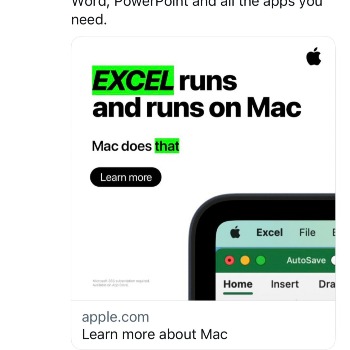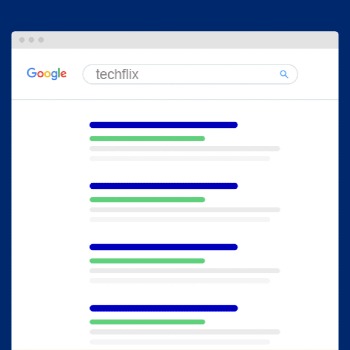SEO Ideas for Websites: A Comprehensive Guide to Improve Ranking on Google Search
Search engine optimization, or SEO, is a crucial tool for success as more and more organizations nowadays concentrate on their online presence in the digital world. Making your website more visible in search engine results pages (SERPs) increases the likelihood that potential buyers will see your material. This is known as search engine optimization (SEO). There are a few basic SEO tactics that can significantly raise your website's rating, despite the common misconception that SEO is a complicated and dynamic field.
SEO: On-Page vs. Off-Page Optimization
On-page SEO and off-page SEO are the two main categories into which SEO can be separated. Making your website's content and structure more search engine friendly is the main goal of on-page SEO. This covers elements like image optimization, header tags, meta descriptions, title tags, and keyword utilization. On the other hand, off-page SEO concentrates on constructing trustworthy external backlinks to your website. By acting as votes of confidence, these backlinks let search engines know that your website is reliable and valuable.
On-Page SEO Techniques for Enhanced Ranking
- Keyword Research and Strategic Usage: Conduct keyword research and strategically employ the terms that your target audience is most likely to use to find information about the content of your website. Naturally include these keywords into the body text, headers, meta descriptions, and title tags on your website.
- Informative and Engaging material: Produce material of the highest caliber that speaks to, engages, and informs your intended audience. To keep your website dynamic and entice visitors to spend more time on your pages, update new content on a regular basis.
- Optimised Title Tags and Meta Descriptions: Craft precise and succinct descriptions of your website's content for your title tags and meta descriptions. Search results offer these snippets to give users a sneak peek at your page and encourage clicks.
- Strategic Header Tags: To organize your text and draw attention to key passages, use header tags (H1, H2, H3, etc.). Header tags aid search engines in recognizing important places in your content and in deciphering its hierarchy.
- Optimize Images with Alt Tags: Provide descriptive alt text for all images on your website. Alt text helps search engines understand the content of images and makes your website more accessible to visually impaired users.
Off-Page SEO Strategies for Building Authority
- Link Building: Build high-quality backlinks from reputable websites to your own. Backlinks serve as signals to search engines that your website is trustworthy and relevant, boosting its authority.
- Social Media Engagement: Use social media to promote your website and content by being active on these networks. To build brand awareness and improve website traffic, share your material, engage with followers, and take part in pertinent debates.
- Guest Blogging: Contribute guest posts to well-established websites in your niche. This allows you to reach a wider audience, establish yourself as an expert in your field, and gain valuable backlinks.
- Local SEO: Optimize your website for local search if your business has a physical location. This includes claiming and verifying your Google My Business listing, using local keywords, and building backlinks from local sources.
Additional SEO tips that could help you improve your website’s SEO ranking:
Improve website loading speed:
A faster website loading speed can positively impact your Google rankings. You can use tools like Google’s PageSpeed Insights or Semrush’s Website Checker to check your website’s loading speed and identify specific issues that are slowing it down.
some tips to improve website loading speed include compressing images, moving to a better host, reducing web page file size, and deleting unnecessary third-party scripts
Get your site inside of featured snippets:
Featured snippets are a great way to increase your website’s visibility on Google. You can use a new strategy called “Snippet Bait” to get your site to rank in Featured Snippets. First, find a keyword that you already rank for. Next, look at the Featured Snippet at the top of the SERPs and identify what type of Featured Snippet you’re looking for. Then, create content that is specifically designed to rank in that Featured Snippet
Improve dwell time with this simple step:
Dwell time is the amount of time a user spends on your website after clicking on a search result. A longer dwell time can positively impact your Google rankings. One simple way to improve dwell time is to make sure your website’s content is engaging and relevant to the user’s search query.
Use sitelinks:
Sitelinks are additional links that appear below your website’s main search result on Google. They can help users navigate your website more easily and improve your website’s visibility on Google. You can use Google Search Console to manage your sitelinks .
Create linkable assets:
Linkable assets are pieces of content on your website that are so valuable and informative that other websites will want to link to them. Creating linkable assets can help you earn high-quality backlinks, which can positively impact your Google rankings.
Target keywords with high commercial intent:
Keywords with high commercial intent are search terms that indicate a user is looking to make a purchase. Targeting these keywords can help you attract more qualified traffic to your website and improve your conversion rates.
Grab more SERP real estate:
SERP (Search Engine Results Page) real estate refers to the amount of space your website occupies on Google’s search results page. You can grab more SERP real estate by creating content in different formats, such as videos, images, and podcasts. You can also use Google My Business to create a business profile that appears on Google Maps and in local search results.
Rank for “Topic + Statistics” keywords:
Creating content that includes statistics can help you attract more traffic to your website. You can use tools like Google Trends or BuzzSumo to find popular statistics related to your niche. Then, create content that includes those statistics and target keywords like “topic + statistics”.
Optimize old content for user intent:
User intent refers to the reason behind a user’s search query. Optimizing your old content for user intent can help you attract more qualified traffic to your website. You can use tools like Google Analytics or Google Search Console to identify which pages on your website are not meeting user intent. Then, update those pages to better meet user intent
Try content partnerships:
Content partnerships are a great way to earn high-quality backlinks and increase your website’s visibility on Google. You can partner with other websites in your niche to create content that is mutually beneficial. For example, you can write a guest post for another website in exchange for a backlink to your website.
FAQs
Q: How long does it take to see results from SEO efforts?
A: SEO results can vary depending on the competitiveness of your industry, the authority of your website, and the quality of your SEO efforts. It can take several months or even longer to see significant improvements in ranking.
Q: What are the most important SEO factors?
A: While there are numerous SEO factors, the most important ones include high-quality content, strategic keyword usage, effective link building, and a mobile-friendly website.
Q: Can I do SEO myself?
A: While you can implement some basic SEO practices on your own, it is often beneficial to seek assistance from an experienced SEO professional or agency for more comprehensive and targeted strategies.
Q: What are the benefits of SEO beyond ranking?
A: SEO not only improves your website's ranking in search results but also drives organic traffic, increases brand awareness,



